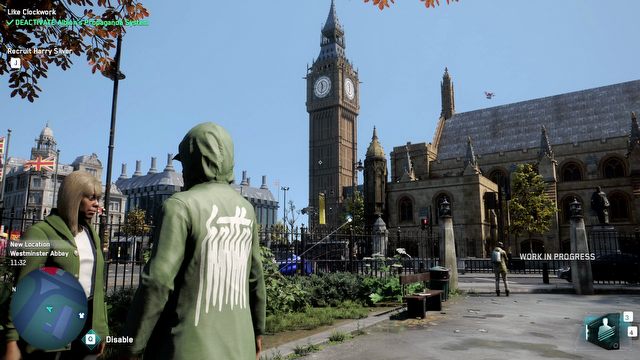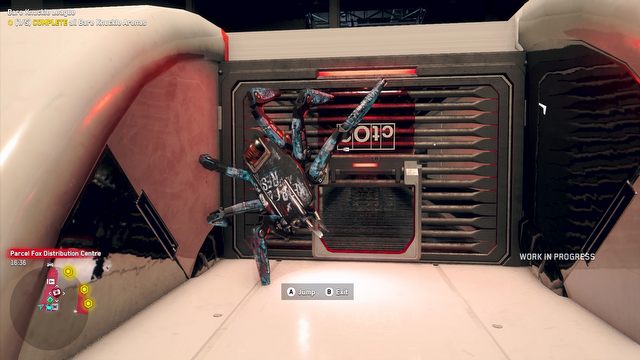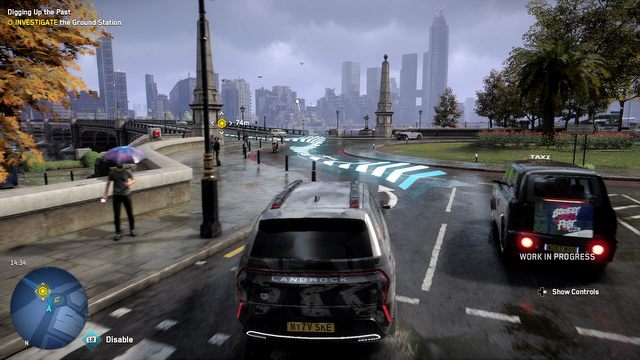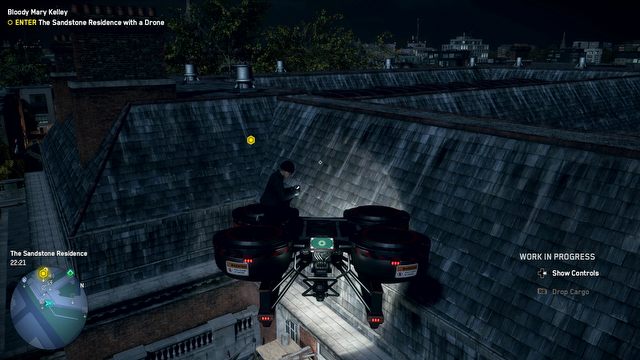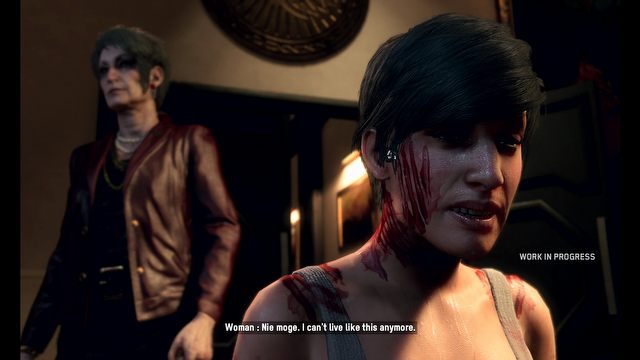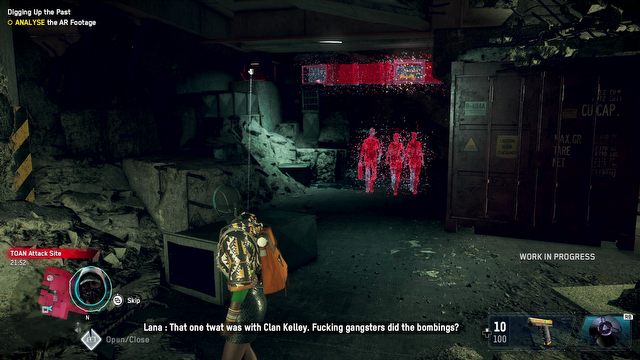5 Likes & Yikes: Watch Dogs Legion
The latest instalment of the Watch Dogs series, despite some revolutionary solutions, still holds on to its roots. This is what I like and what I definitely don't like about the Legion.
For the past few years, Ubisoft has been taking a very commandalbe strategy of presenting their games – it's not just videos on the Internet showing gameplay combined with talking heads from the studio, telling us what to expect from a particular piece – today, journalists get access to playable builds long before the release. As a result, I've already spent around 10 hours in Legion, being able to formulate a pretty precise opinion about most elements of the game. If you've read my July preview, you may already be aware of the following, though there have been changes in some of my opinions.
We've decided to alternate the likes and yikes. We hope it will be more engaging and still transparent.
1. The fantastic atmosphere of London
Here, Ubisoft has unquestionably done a great job. For the first time, Watch Dogs decides to leave the States and visit Europe, quite predictably opting for London. The famous city is full of distinct landmarks and has some incredible cultural diversity, at the same time feeling sort of cozy.
Watch Dogs 2 was quite annoying with all that "chad vibes” of DeadSec. Everything is still quite exaggerated (including the outfits), but the inhabitants, the team, and the city itself seem much more tame and relatable. We'll be able to recruit people of different nationalities; I had a chance to hire a guy from India and Poland (a nice touch was that he actually spoke Polish). Plus, there's a host of characters with diverse British accents. Perhaps it's due to my fascination with the British culture, but I was truly delighted with everything I heard and saw. It's the dystopian London I never fought for.
2. No real protagonist? Yikes!
In this case, I think we all had doubts – can a game like this do without a main character? I'll admit that before the last four hours of the game, I was more positive towards that element than I am today. Sure, on the technical side, it's all properly realized. No matter who we are playing as, the characters appear in cut-scenes and speak in their own voices, no problem. The thing is, of course, that voicing an entire city-worth of people is impossible, so the authors resorted to different tricks to get as many different voices from a limited pool of recordings.
This, however, negatively impacts the quality of voice acting: most lines are delivered in quite a bland way, so as to allow incorporating them for all sorts of characters. While the idea of "playing as anyone" is ambitious, there are some obvious limitations to that, and they can't be overcome just yet, and the narrative won't be nearly as gripping as a story with a single, concrete protagonist. It's all pretty... monotonous in the long run, and I even found that in those four hours, a random conversation between my recruit and Bagley (their AI assistant) repeated, only in a different voice. The game can't come with unlimited lines of dialog, sure, but given that it happened during a short, 4-hour session, it either means I was unlucky, or that something could be very wrong.
3. Mission approach depends on the player
Even if you play games mostly for the story, the type of fun offered by Watch Dogs simply requires engaging gameplay, especially in the case of a show like the one Legion pulls off. London really has become a sandbox, where the solution to many of the problems we encounter depends only on our own resourcefulness. That's actually great news because it means that (almost) every mission can be done in many ways. If you aren't afraid of dead bodies, you can hire an ex-assassin able to kill anyone almost instantly with hand-to-hand combat, and if you prefer to act quietly, you can opt for individuals with high infiltration skills, or hackers able to use spider-bots.
Deus Ex, or newer installments in Splinter Cell, are among the best examples of games that allow high mission flexibility; you can either play a killer in a frenzy, or a ghost. It doesn't seem like the game has any system for judging the morality of our conduct, so the choice seems to exist only to accommodate different approaches and play styles. And in this respect, Legion works great, although locations are fairly simple in terms of design, and are mostly easy to navigate.
4. Driving sucks – part three
Now this is more of a subjective issue, and I generally have a hard time finding action games whose driving models I'd enjoy. But there's certainly some truth in that few of modern open-world games deliver a satisfying driving model. On the other hand, I'm among the few people, who enjoyed the ponderous driving in GTA IV. Watch Dogs has never been famous for a super-comfortable driving model, and it's no different in Legion. The choice of vehicles is huge, and they all differ quite a lot in handling and acceleration. However, they still feel like driving bathtubs with different top speeds.
Is there anything to save the day? Two things, actually. First, there's an "autodrive" mode that allows you to reach the destination on auto pilot; and then we can also take the subway. This doesn't completely solve the driving problem, but at least reduces it.
5. Many, many character classes...
As recently as last year, the game featured three character classes, and they were supposed to focus on infiltration, hacking, and brute force. The system was since redesigned and Ubisoft introduced more classes, explored in subsequent presentations. It's a very inventive system that grants smaller specializations to characters: a street artist has access to spray paint, a royal agent drives a special car that fires rockets and can use camouflage, etc.
There's a slew of such options, and we can really assemble quite a wild, diverse team. In the end, though, the most tangible effect of this in terms of gameplay are the passive skills of some classes. For example, a law-abiding team member will spend less time in prison after being caught. And let's not kid ourselves – at the end of the day, all of us will want to recapture London with a gang of old ladies.
6. ...But not enough variety in gameplay
And that's the thing. Despite offering a large number of different specializations, in the end, each of them feels and plays pretty much the same way. The characters have unique weapons and behaviors, but with the ability to customize their equipment or skills, you can create an army of clones, which will vary in appearance and, say, a single piece of equipment, set as mandatory for the given individual. This is admittedly the one time when I was a little disappointed with the lack of a more sturdy frame for various specializations. If we can convert any inhabitant of London into the same kind of character using a spider-bot, camouflage, or a turret, then why give us such huge pool of characters in the first place?
"Sure," you could say. "Who exactly is forcing you to create an army of clones?" And that's true – the problem I have is different. It's more of an abstract matter – I just don't quite understand why character classes work in this particular way. If it was just about passive perks, you could have just given them in the usual way, simply spelling the character's profession, rather than offer specializations that don't mean so much in the end.
7. Plenty of skills to develop
We have to discuss character customization in more detail, because the game really brings substantial customization capabilities. If I'm not mistaken, it's possible to upgrade a total of 24 items, 6 from each category: gadgets (spider-bot, camouflage), enhancements (hiding the body of enemies, improved endurance), weapons (mainly non-lethal) and hacks for live enemies, drones or turrets. Most of these upgrades have 3 levels of advancement, and are redeemed using technology points earned for completing tasks or found while exploring London.
In a way, it's a simple skill tree, but it's definitely more advanced than I expected. The next levels mainly come down to increasing the prowess of different skills, but it still allows quite a lot of precision in developing the characters. Unlocking any element affects the entire team, so there's fortunately no need to do it for each character individually.
8. Antagonists are completely uninspired (with one exception)
I complained about this in my previous preview, because the opponents in Ubisoft's games are usually angry in a very exaggerated, cartoonish way. A bad guy is bad because he has to be bad for a player to feel ok killing them. It's way too safe and way too boring. There have to be some shades of grey to any good villain. And who do we get here? A man who wants to seize the entire city, a mafia godmother who makes money trafficking humans and organs, and...
Well, this time around I had a chance to meet another person that DeadSec would like to get rid of in Legion. I don't want to spoil the surprise for you, so I'll only say that she's also extremely angry, but the devs have gone a step further; the moment we find out exactly what she did, we feel genuine disgust. And there was actually motivation to get rid of that person in that case. If there will be more villains than this, and at least some of them will be able to provoke any kind of emotional response, the game will benefit hugely.
9 & 10. Permadeath is a great idea... that Ubisoft already hates
We got to the last bit, which is both an advantage and a disadvantage. One of the most exciting elements of Legion was that, since there's no protagonist per se and we just recruit everyone, we may lose the entire team because of permadeath. This gives the game much more depth – you can either act as "by all means neccesary" kind of person, accepting any number of casualties, or build a dream team, where every member is worth their weight in gold. Remember the first gameplay from last year? The whole message emphasised that your character could die and you could lose them forever.
I get the impression that someone then did some tests on focus groups and it turned out that permadeath was not conducive to casual entertainment, so it was decided to tone it down a little. Death is still possible in the game, but only if you activate this option when starting the game. Both shows this year were had permadeath switched off, so that I wouldn't accidentally kill my entire team in those few hours. Since last year's E3, I have not heard a word about how permadeath is supposed to work, and information about the optional mechanics only emerged because one of the journalists asked specifically about it during an interview with Clint Hocking, creative director at Watch Dogs Legion.
I can't shake the thought that this installment is going to forsake one of the biggest, boldest game-changers it was supposed to introduce. And again – I'm aware you can enable it in the settings, but it's not as bold, you know? With big games, Ubisoft is invariably afraid to take risks, which, in the long run, could be harmful – not many people seem to enjoy highly repetitive games. Games usually prove that if something's good for everyone, it's really god for nobody.
So, are you hyped for Legion?
I'm waiting. Despite poking at various elements of this game, it will be the most interesting release of October for me, definitely more interesting than Valhalla, which – I must openly admit – for the first time since many years managed to spark a little of my interest (and some outcry on the Internet for recycling Cassandra's hair). For some reason I have a soft spot for the Watch Dogs series, even though they're not among the most outstanding games I have ever played. Maybe it's about this slightly romantic vision of hackers fighting for freedom for people around the world. Or perhaps, among all the tiredness of open worlds, Watch Dogs offers them in such an affordable and somewhat unique form that every few years I get re-immersed in what the French devs have to offer.
Legion won't be a perfect game and it looks like it won't be as big a step forward – as I expected from the initial announcements. However, I can say with certainty that in less than a month, I will be roaming the streets of London looking for potential recruits for DedSec, and I will certainly be doing so with permadeath switched on.
ABOUT THE AUTHOR
While the words "Watch Dogs" evoke immediate associations with downgrading, I have a soft spot for this series. Aiden Pierce had a decent adventure in Chicago, and Marcus Holloway sported Cooler gameplay, but in a setting that wasn't all that engaging. Legion promises to be a mix of both, with stronger vibes from number one, which definitely suits me.
